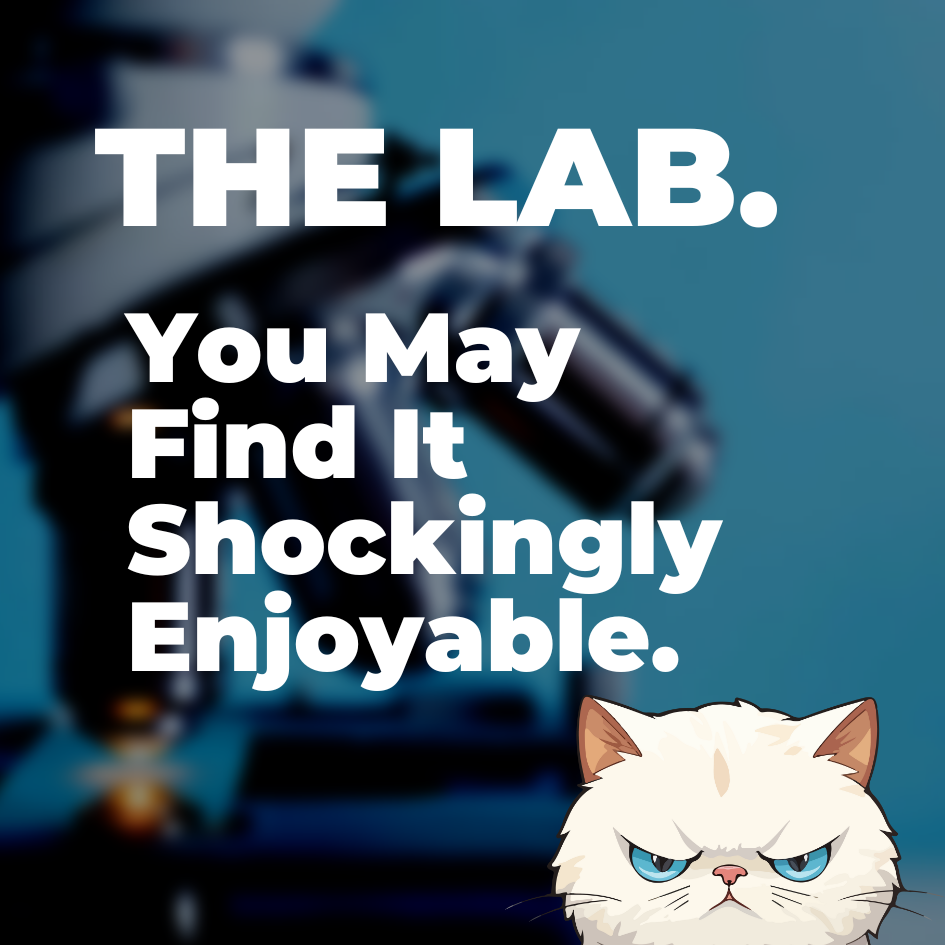Just read this on the WriteMentor newsletter:
By Stuart White
I’m basing the Final Word this week around a very insightful and honest tweet from the lovely Louie Stowell:
https://x.com/Louiestowell/status/1710564111027700157?s=20
Among the more insightful things she mentions is:
It's also a mirage that "good books will rise to the top". NO. Books that people want to buy (and are persuaded to buy by marketing) rise to the top. That doesn't mean quality. It means "there's a market for it". There's also a market for cigarettes. Doesn't make em a good thing.
And it’s maybe that point that I wanted to advance a little upon.
Books occasionally become bestsellers organically, but far more often than not, there’s a direct correlation between marketing budget spend and sales. In short, a publisher is about making profit (ultimately), and so anything they think might be profitable gets the monetary backing. If they don’t think it will make them money, they don’t spend more money on it.
Actually makes sense.
But just to demystify what you see from authors and give you more insight.
See that book on the front cover of the Bookseller. The publisher pays £5,775 for that. More than some advances, or about 50% of what I see most of my friends get as advances.
Double page spread: £3500. Quarter page: £850.
Web banner on their website: £2000.
I won’t list the full prices, but they’re all freely available here.
FYI: not at all a bash at the bookseller or publishers or ANYONE! Most of this is me just stating facts, but facts that maybe not many writers are aware of.
My point is simply that sometimes the book on the front of the bookseller isn’t the best book, but simply the book that the publisher thinks spending just under £6k on will reap that profit in the future from that publicity.
An author friend told me this, after their book appeared in the next seasons list of upcoming releases. “Another instance is books in the bookseller highlights with cover photos are not reserved for books they like - £200 a pop!”
There’s also a useful tool called Facebook Ads Library - it’s a well known thing in self-publishing because we do all our marketing ourself - where you can look up an author or book name and see if the publisher is advertising it on Facebook. Some big books are, but it’s very narrow - ie only the better selling ones.
Amazon ads are the same. Think that bestseller is showing up on your Amazon because it think you’ll actually like it? Think again, it’s there because the publisher has paid for it to pop up when you search for a certain category or genre or author or book.
Book Awards are the same - several thousands of pounds usually to even nominate a book, so we often see the same books submitted by publishers (they can’t afford to put in too many), which is why shortlists and winners in each year are often the same people, because those are the people and books the publisher wants to back - at that time. It’s not that those AREN’T the best books - many of them are VERY good but it’s not about being the best - it’s about them making a calculated decision on which books to submit for the award based upon how much return those books will make in sales if they win.
Booksellers have paid spaces in their stores, some authors will get a gazillion proofs sent out to EVERYONE and others don’t even get an e-book Netgalley proof.
Basically it’s not a meritocracy - it’s not the best books that become bestsellers, it’s those with the biggest ad spend.
And this isn’t to bash that approach entirely either - it is business that supports thousands of jobs and gives (a little) income to many authors.
But it’s important for us all to remember this when we do get published - the few that you see doing really well are often getting money pumped into their marketing.
So is it hopeless for most of us seeking a traditional publishing deal? Will we get backed when they publish us?
Maybe. But maybe not. And I think you all deserve to go into this with your eyes open, so if it does happen, then maybe it doesn’t feel quite as awful as it has for so many of my published friends.
And I know many of you will bury your head in the sand on this matter - you will convince yourself you’ll be the exception, not the rule - and I hope you are! But part of what I do with WriteMentor is I don’t want to keep peddling or selling you that dream that so many people in publishing do.
Newsletter headlines like:
And you’d drive yourself bananas if you keep thinking otherwise.
But to finish on a positive note, because that all sounds a bit rubbish above, if honest - you can control certain things, like improving your craft and writing a story that no-one can put down and that will force those publishers to HAVE to spend that marketing money on your book over others.
Keep our heads down, and the words flowing. Everything else is gravy.
By Stuart White
I’m basing the Final Word this week around a very insightful and honest tweet from the lovely Louie Stowell:
https://x.com/Louiestowell/status/1710564111027700157?s=20
Among the more insightful things she mentions is:
It's also a mirage that "good books will rise to the top". NO. Books that people want to buy (and are persuaded to buy by marketing) rise to the top. That doesn't mean quality. It means "there's a market for it". There's also a market for cigarettes. Doesn't make em a good thing.
And it’s maybe that point that I wanted to advance a little upon.
Books occasionally become bestsellers organically, but far more often than not, there’s a direct correlation between marketing budget spend and sales. In short, a publisher is about making profit (ultimately), and so anything they think might be profitable gets the monetary backing. If they don’t think it will make them money, they don’t spend more money on it.
Actually makes sense.
But just to demystify what you see from authors and give you more insight.
See that book on the front cover of the Bookseller. The publisher pays £5,775 for that. More than some advances, or about 50% of what I see most of my friends get as advances.
Double page spread: £3500. Quarter page: £850.
Web banner on their website: £2000.
I won’t list the full prices, but they’re all freely available here.
FYI: not at all a bash at the bookseller or publishers or ANYONE! Most of this is me just stating facts, but facts that maybe not many writers are aware of.
My point is simply that sometimes the book on the front of the bookseller isn’t the best book, but simply the book that the publisher thinks spending just under £6k on will reap that profit in the future from that publicity.
An author friend told me this, after their book appeared in the next seasons list of upcoming releases. “Another instance is books in the bookseller highlights with cover photos are not reserved for books they like - £200 a pop!”
There’s also a useful tool called Facebook Ads Library - it’s a well known thing in self-publishing because we do all our marketing ourself - where you can look up an author or book name and see if the publisher is advertising it on Facebook. Some big books are, but it’s very narrow - ie only the better selling ones.
Amazon ads are the same. Think that bestseller is showing up on your Amazon because it think you’ll actually like it? Think again, it’s there because the publisher has paid for it to pop up when you search for a certain category or genre or author or book.
Book Awards are the same - several thousands of pounds usually to even nominate a book, so we often see the same books submitted by publishers (they can’t afford to put in too many), which is why shortlists and winners in each year are often the same people, because those are the people and books the publisher wants to back - at that time. It’s not that those AREN’T the best books - many of them are VERY good but it’s not about being the best - it’s about them making a calculated decision on which books to submit for the award based upon how much return those books will make in sales if they win.
Booksellers have paid spaces in their stores, some authors will get a gazillion proofs sent out to EVERYONE and others don’t even get an e-book Netgalley proof.
Basically it’s not a meritocracy - it’s not the best books that become bestsellers, it’s those with the biggest ad spend.
And this isn’t to bash that approach entirely either - it is business that supports thousands of jobs and gives (a little) income to many authors.
But it’s important for us all to remember this when we do get published - the few that you see doing really well are often getting money pumped into their marketing.
So is it hopeless for most of us seeking a traditional publishing deal? Will we get backed when they publish us?
Maybe. But maybe not. And I think you all deserve to go into this with your eyes open, so if it does happen, then maybe it doesn’t feel quite as awful as it has for so many of my published friends.
And I know many of you will bury your head in the sand on this matter - you will convince yourself you’ll be the exception, not the rule - and I hope you are! But part of what I do with WriteMentor is I don’t want to keep peddling or selling you that dream that so many people in publishing do.
Newsletter headlines like:
- Want to be published? Here’s the person who made XYZ a bestseller to teach you how!
- How to become a published author like XYZ bestselling author!
And you’d drive yourself bananas if you keep thinking otherwise.
But to finish on a positive note, because that all sounds a bit rubbish above, if honest - you can control certain things, like improving your craft and writing a story that no-one can put down and that will force those publishers to HAVE to spend that marketing money on your book over others.
Keep our heads down, and the words flowing. Everything else is gravy.




